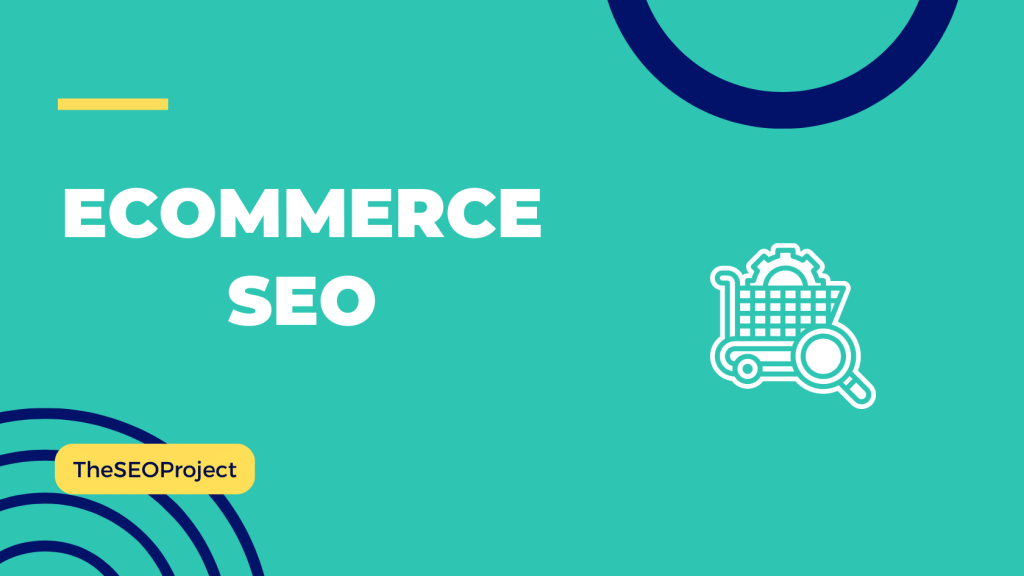Startups are one of the best ways to bring out new and innovative ideas to the world. People use growth tactics that require little or no investment. SEO (search engine optimization) is one of those tactics.
I believe SEO is an essential part of online business, as it helps your website gain visibility and organic traffic, and build a strong online presence.
SEO may not require a lot of budgets, but you need to go through a stepwise process to get it done right. Once your website is fully SEO-friendly, it will grow almost on autopilot—even for startups.
In this article, you will discover some cost-effective SEO strategies and why it is necessary for your startup. I will also list a few free SEO tools as startups are usually very tight on budget.
Let’s get started.
Why Should Startups Invest in SEO?
Investing in SEO can provide numerous benefits for startups. Here are some compelling reasons why startups should prioritize SEO:
- Increased Visibility: SEO helps startups improve their visibility in search engine results pages (SERPs), making it easier for potential customers to discover their products or services.
- Targeted Traffic: Startups pull in more traffic through search engines by optimizing the keywords for their website. This will attract a pool of genuine audiences who have been following their services and offers. We will then see a spike in conversations happening.
- Cost-Effective Marketing: Compared to traditional marketing, SEO is a cost-effective marketing strategy that you should approach. Startups can achieve long-term results and a higher return on investment (ROI) by investing in SEO.
- Builds Credibility: IF your website is ranking high in search results, it enhances your startup’s credibility and brand reputation. This implants a sense of trust and confidence in a user’s mind after these websites appear on Google’s first page.
- Sustainable Growth: Even though SEO is very effective for sustainable business growth, it also helps your startup with long-term strategies. By consistently optimizing an online presence, startups can enjoy continuous organic traffic and better rankings over time.
How is Startup SEO Different from Regular SEO?
SEO for startups may face a fresh challenge as usually, regular SEO focuses on optimizing websites with online exposure. This is due to the absence of brand recognition, limited resources, and a need for rapid growth.
Startups face specific challenges when it comes to SEO, including:
- Building trust and credibility in the early stages can be challenging for startups without a track record.
- Startups often have limited manpower and financial resources to allocate to SEO efforts.
- Startups need scalable SEO strategies to accommodate rapid growth without compromising on quality.
- Startups aim to achieve results quickly, necessitating efficient and focused SEO tactics.
When Does a Startup Need SEO?
When it’s obvious that your startup needs SEO, following the below stages will help you grow.
1. Early Stage
Let me tell you that the best time to implement SEO strategies for your startup would be at the earliest stage of the business. At this stage, your startup can jump-start to a whole level, with a better online presence and increased brand visibility. It will give you a competitive edge within your niche.
2. Established Startups
Your established startup might already have some online presence, but investing in SEO can scale your business to skyrocket. By optimizing existing assets and continually improving SEO strategies, your startup can further enhance its online visibility and attract a wider audience.
3. Competitive Industries
Startups operating in highly competitive industries can greatly benefit from SEO. When the market is saturated with established players, SEO allows your startup to level up and compete effectively by appearing in search results through relevant keywords.
4. Websites for Physical Stores
Startups that operate in a specific geographic location can benefit from local SEO. By optimizing their website for local search terms, they can attract more local visitors to their website and drive more foot traffic to their brick-and-mortar locations.
5. E-commerce SEO
For your startup, if it operates e-commerce websites, SEO can greatly improve its online sales. Optimizing product pages and improving your website’s ranking in search results can attract more potential customers and increase conversion rates.
When Doesn’t A Startup Need SEO?
Not every startup needs to implement SEO strategies. Here are some situations when you don’t need full-scale SEO for startups:
1. Testing Ideas
Sometimes individuals start a business or startup to test projects and ideas. It helps them develop a long-term strategy for their innovative business idea. In such cases, they don’t necessarily need to implement an SEO strategy for their startups.
2. Limited Online Presence
If a startup operates solely through offline channels or has a negligible online presence, investing in SEO may not be a priority. However, in today’s digital age, having an online presence is crucial for most businesses. so carefully evaluate the potential benefits of SEO for your startup.
3. Short-term Goals
If your Startup comes with short-term goals like launching a specific product or conducting a limited-time campaign, you may not need to invest heavily in SEO. In such cases, other marketing strategies may provide more immediate results.
4. Niche or Local Businesses
If your startup is targeting a niche audience or serving a specific local market, investing in highly targeted SEO strategies might not be necessary. Instead, focusing on localized marketing efforts or niche-specific advertising channels may yield better results.
How to do SEO for Startups?
Since Google never shares its precise ranking factors, SEO for startups typically follows a similar process as regular SEO. Usually, startups don’t have enough resources or budget to invest in costly SEO strategies or tools, so they need to focus on essential aspects that can be done without spending too much.
Here are some crucial factors for SEO that startups can implement:
1. Set Up Your SEO Goals
It is important to set clear goals for your startup’s SEO strategy. What are your objectives? Do you want to increase website traffic, improve your search engine rankings, or drive conversions? Your goals will determine your overall SEO approach and help you measure success.
2. Conduct Comprehensive Keyword Research
Keyword research is the foundation of any successful SEO campaign. Startups should identify relevant keywords with high search volume and low competition.
You can start with basic keyword research using free keyword research tools like Ubersuggest and Moz. If you have a seed keyword in your mind, you can search for potential high-volume keywords. Or, you can find keywords based on your domain. But don’t forget to select your target location.
Here’s a simple example of keyword research for your niche:
After conducting research, you will get results with critical metrics such as search volume, CPC, and SEO difficulty.
You will also get a bunch of keyword ideas and content ideas for your seed keyword.
However, these are basic key metrics for a keyword research tool. For more thorough results, you can use premium tools like Semrush or Ahrefs.
3. Optimize On-Page Elements
Startups should optimize key on-page elements to improve their website’s visibility. This includes:
- Title Tags and Meta Descriptions: Craft compelling and keyword-rich title tags and meta descriptions that accurately describe each page’s content. For example, if your startup sells handmade soaps, a good title tag would be “Handmade Soaps | Natural and Organic Soaps for Sensitive Skin”.
- URL Structure: Create clean and user-friendly URLs that incorporate target keywords. For example, instead of “www.startup.com/product?id=1234”, use “www.startup.com/natural-handmade-soaps”.
- Headings and Subheadings: Use descriptive headings (H2, H3) to organize content and make it easier for both users and search engines to understand. For example, use “Why Our Handmade Soaps are the Best” as an H2 heading on a product page.
- Keyword Placement: Incorporate relevant keywords naturally throughout the content, including in headings, subheadings, and body paragraphs. But be careful not to overdo it, as keyword stuffing can harm your rankings.
- Optimized Images: Optimize images with alt tags and descriptive filenames to improve accessibility and search engine understanding. For example, instead of “image1234.jpg”, use “natural-handmade-soap.jpg” and add an alt tag like “Natural and Organic Handmade Soaps”.
4. Develop High-Quality Content
Startups should focus on creating valuable and engaging content that resonates with their target audience. This includes:
- Blog Posts: Publish informative and well-researched blog posts on topics relevant to the startup’s industry, products, or services. For example, a handmade soap startup could write a blog post on “The Benefits of Using Organic Ingredients in Handmade Soaps”.
- Guest Blogging: Contribute guest posts to authoritative websites in the industry to build backlinks and increase brand visibility. For example, the same handmade soap startup could write a guest post on “How to Make Your Own Natural Soaps” for a DIY beauty blog.
- Video Content: Leverage the power of video by creating engaging and informative videos for your startup. You can have it shared on platforms like YouTube or embedded in blog posts. For example, the handmade soap startup could create a video tutorial on “How to Make Handmade Soaps at Home”.
5. Build Quality Backlinks
Backlinks play a crucial role in improving a website’s authority and rankings. Focus on acquiring high-quality backlinks for your startup through:
- Content Promotion: Actively promote valuable content to relevant industry publications, influencers, and bloggers, increasing the chances of earning backlinks. For example, the handmade soap startup could reach out to a beauty blogger and offer to provide them with free samples in exchange for a review or feature on their blog.
- Guest Posting: Contribute guest posts to reputable websites in the industry, including a link back to the startup’s website in the author bio or content. For example, the handmade soap startup could write a guest post on “The Benefits of Using Natural Ingredients in Soaps” for a natural skincare blog.
- Partner Collaborations: Seek opportunities for collaborations with complementary businesses or organizations where mutually beneficial backlinks can be exchanged. For example, the handmade soap startup could collaborate with a natural skincare brand and feature each other’s products on their respective websites.
6. Optimize for Local SEO
If your startup is targeting a local audience, optimizing for local SEO is crucial. This includes:
- Google My Business: Create and optimize a Google My Business listing with accurate business information, including address, phone number, and operating hours. Fill out all relevant sections, including your business’s description and photos.
- Local Citations: Ensure consistent NAP (Name, Address, Phone Number) information across all online directories and review platforms. This includes Yelp, Yellow Pages, and other local directories.
- Online Reviews: Encourage your customers to leave reviews on platforms like Google, Yelp, or industry-specific review sites, as positive reviews can boost local rankings. Respond to all reviews, both positive and negative, in a timely and professional manner.
7. Monitor and Analyze Performance
Your startup should be regularly monitored to analyze the overall SEO performance. This will definitely give you an insight into the progress and may help you to identify areas of improvement.
Key metrics to track include:
- Organic Traffic: Monitor the overall organic traffic trend and identify any significant changes or fluctuations. Use Google Analytics to track your traffic.
- Keyword Rankings: Keep track of keyword rankings to assess the effectiveness of SEO efforts and make necessary adjustments. Use tools like SEMrush or Ahrefs to track your rankings.
- Conversion Rate: Analyze the conversion rate of organic traffic to determine the quality and relevance of the incoming traffic. Use Google Analytics to track your conversions.
- User Behavior: Use tools like Google Analytics to understand user behavior on the website, including bounce rates, time on page, and popular pages. Use this information to optimize your website and improve user experience.
5 Best Free SEO Tools for Startups
If you’re a startup with a limited budget, investing in expensive SEO tools may not be feasible. However, that doesn’t mean you can’t achieve success with your SEO efforts. Here are the top 5 free SEO tools that can help you improve your website’s search engine rankings:
1. Google Analytics
This is a powerful tool that can help you track and analyze your website traffic. You can use it to understand how users interact with your website, which pages are popular, and where your traffic is coming from.
2. Google Search Console
Google Search Console can help you monitor your website’s performance in Google search results. Use it to see what keywords are ranked on your site, what pages are getting the most clicks, and what pages have errors to be fixed.
3. MozBar
Mozbar is a free browser extension to help you analyze the on-page elements of any website. You can use it to see the page title, meta description, and header tags of any page, as well as the number of backlinks and social shares.
4. Yoast SEO
This is a free plugin for WordPress that can help you optimize your website for search engines. It provides suggestions for improving your content and metadata, and it can also generate XML sitemaps and breadcrumbs.
5. Ubersuggest
This is a free keyword research tool to help you find new keywords to target. You can use it to see the search volume and competition level for any keyword, as well as related keywords and content ideas.
Related Reads:
My Verdict on — SEO For Startups
Investing in SEO is a crucial step if your startup is looking to establish a robust online presence, attract organic traffic, and drive sustainable growth.
By understanding the unique challenges every startup has been facing, you have an added advantage over others through this article. You just have to identify the right time to invest in SEO and implement effective strategies, if your startup should be well positioned for a longer success.
Remember, SEO is an ongoing process that requires continuous monitoring, adaptation, and refinement. With the right approach, your startup can harness the power of SEO to gain a competitive edge in its industry.
FAQs: SEO For Startups
Startups should prioritize SEO once they have a well-defined product or service, are operating in a competitive market, and have the resources to invest in SEO strategies.
SEO is a long-term strategy that may take several months to see significant results. However, with consistent effort and the implementation of best practices, your startup will start seeing improvements in its rankings and organic traffic.
The decision to hire an SEO agency or handle SEO in-house depends on the startup’s resources, expertise, and budget. In some cases, startups may benefit from outsourcing SEO to experienced professionals who can provide specialized knowledge and save time.
Yes, startups targeting a local audience can greatly benefit from local SEO strategies. Optimizing for local search helps increase visibility within the specific geographic area and drives targeted traffic to the startup’s website.
SEO is an ongoing process. Search engine algorithms evolve, competitors change their strategies, and user behavior shifts. Startups need to continually adapt and optimize their SEO efforts to stay ahead and maintain their rankings and visibility.


